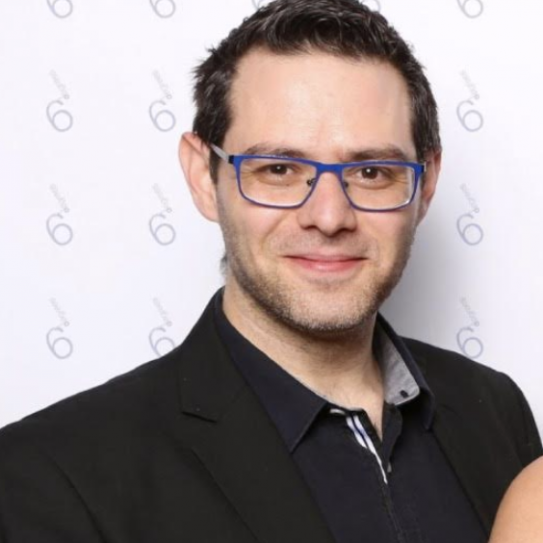
Many companies have interesting origin stories, but few probably involve machine learning, a stint as a paratrooper, the study of marine biology, the prestigious Mass Challenge competition, and a chronic condition known as complex regional pain syndrome (CRPS). The tale of the Israeli-based startup 6Degrees contains all those elements, plus healthy measures of determination, tech savvy, and social good. (Did we mention there’s a love story in there too?)
6Degrees got its start when Aryeh Katz and his wife, Miri — that’s the love story part — were still both students. Katz, the son of Canadian-American émigrés to Israel, had embarked on his required service in the Israel Defense Forces (IDF) in 2002, but a devastating injury ended his stint in the military and resulted in nerve damage in his foot and CRPS.
After a grueling period of rehabilitation, he entered Ben Gurion University of the Negev, where he earned an undergraduate degree in biology. He focused on marine biology, thinking that his nerve damage would not preclude him from a research career in that field. When Miri, then his girlfriend, was accepted into Pratt Institute to study industrial design, however, Katz followed her to Brooklyn, where he enrolled in the electrical-engineering master’s program at NYU Tandon. “That really gave me my first introduction to innovation and entrepreneurship,” he recalls. “I worked with Professor Mike Knox to run a prototyping lab that became the precursor to Tandon’s MakerSpace, got involved in the InnoVention competition, and did a lot of networking in the startup community.”
Meanwhile, Miri was taking a class in Maya, an animation and modeling program that required some dexterity with a keyboard and mouse. Her professor had lost one arm decades before and expressed frustration that he had never found a mouse he was comfortable using. She knew that Katz, who had access to cutting-edge equipment at Tandon, might be able to build something to help him. He came up with a wearable device that allowed the professor to use his prosthetic limb to move the mouse, and with that success under their belt, they decided to see if the idea could be adapted to work for other users and other devices.
Conferring with physical therapists, doctors, and medical school professors, they turned to creating a motion-based technology that uses machine learning to adapt to any patient, whether their condition has resulted in limited movement (as in the case of an amputee) or uncontrolled movement (as happens with Parkinson’s patients.)
Their company, which was incorporated in 2017, took home a gold medal in the highly competitive MassChallenge competition that year and was invited to take part in the initiative’s Israeli-based accelerator program. Their device, originally called Crescent but, after several iterations, now renamed MyMove, has attracted venture funding and is now available to pre-order.
Among their early testers have been a young double amputee now able to easily write a message to his friend on Facebook, a boy with cerebral palsy now able to create artwork, and a teen without fingers who dialed his mother on a phone for the first time.
“We’ve always hoped to use our design and technology skills to do something to benefit society,” Katz says. “Seeing people use MyMove and watching their reactions lets us know we’re succeeding in that.”

